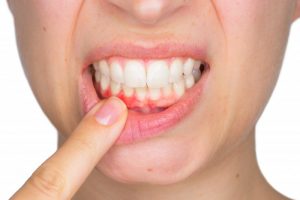
Tooth sensitivity is a problem that plagues many people. However, few people know exactly what tooth sensitivity is—and what causes them to experience sensitive teeth. If you are currently experiencing tooth sensitivity, take a look at the following guide to understanding why your teeth are sensitive, what caused it, and the next steps you need to take.
What Is Tooth Sensitivity?
Tooth sensitivity is a broad term that refers to feeling pain in your teeth as a response to some type of stimuli. Common sensitivity-inducing stimuli includes hot and cold beverages, brushing your teeth, flossing, as well as eating something tough or chewy.
What Causes Tooth Sensitivity?
There are a wide range of things that can cause your teeth to feel sensitive. The most common causes of tooth sensitivity are:
- You grind your teeth. Tooth enamel can be seriously worn done through regular teeth grinding, which can lead to enamel loss and increased sensitivity over time. If you believe you have been grinding your teeth, talk to your dentist about remedies such as custom-fitted mouth guards specifically meant to prevent teeth grinding.
- You’re eating too many sugary and acidic foods. Foods with high levels of sugar and/or acid can wear down your enamel and expose the pathways to the nerves in your teeth. These include the usual sugary culprits such as hard candies and gum with real sugar, but foods with a high level of acid such as pickles, lemons, grapefruits, and even tomato sauce can cause tooth sensitivity. Cut down or remove acidic and sugary foods to see if your sensitivity improves.
- Your gums are receding. If you have gum disease, you may experience tooth sensitivity as a result of your receding gums. If this is the case, talk with your dentist about options to reduce tooth sensitivity such as sealants while also implementing a treatment plan for your gum disease.
- Your whitening toothpaste is too strong. Whitening toothpastes are incredibly common, but they can actually be damaging to your tooth enamel if the ingredients in them are too harsh or strong. Many whitening toothpastes contain harsh chemicals that some people are particularly sensitive to, which can result in increased tooth sensitivity over time. Replace your whitening toothpaste with a milder whitening alternative or, better yet, skip the whitening toothpastes altogether for a traditional formula.
- You have too much plaque. If too much plaque has built up on your teeth, the plaque will begin to cause your tooth enamel to break down. Once you lose enough enamel, your teeth will become more sensitive and prone to painful flare-ups. Make sure that you are seeing your dentist for cleanings regularly and flossing and brushing twice a day.
Should I See a Dentist About My Tooth Sensitivity?
The best thing you can do to reduce or eliminate tooth sensitivity is consult with your dentist about the pain you have been experiencing. Your dentist can help you discover the culprit for the sensitivity and create a treatment plan based on your needs.
For more information on how to treat your tooth sensitivity, contact The Center for Advanced Dentistry’s Beachwood dental office today.
